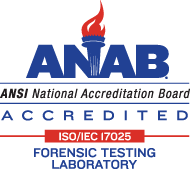Our proprietary extraction techniques have a proven success rate >95% with hair samples as small as 2mm, degraded bone and teeth evidence…so the next time you are faced with challenging evidence, challenge us! We will handle your case in the most expeditious manner with the leading scientific know-how!
We are Single-minded: Mitochondrial DNA Analysis is Our Only Focus
The new Mitotyping Technologies is totally devoted to the forensic applications of mitochondrial DNA (mtDNA) analysis. We are one of the oldest and most experienced group of scientists devoted to this forensic and anthropological DNA specialty, having worked on criminal, civil, exoneration and federal cases in 50 states and numerous foreign countries and have testified over 200 times in mtDNA cases for both the prosecution and defense teams.
Ancient DNA Methodology
Mitochondrial DNA Analysis of shed hairs and hair fragments is our specialty. We have a 95.5% success rate in developing profiles from hairs of all ages and sizes. For highly degraded samples, we offer an "ancient DNA" approach. Each sample is analyzed individually to account for its specific analytical needs. Click here to read our peer-reviewed article in Investigative Genetics.
Typical Evidence Samples Handled:
Our clients include the Australian Federal Police, Ontario Provincial Police, the UK’s LG Forensics, and New Zealand’s Institute of Environmental Science and Research.
Forensic Science Reviews has published our summer 2012 article titled “Forensic Mitochondrial DNA Analysis: Current Practice and Future Potential”, by Terry Melton, Charity Holland and Mitchell Holland.
International Scope
Mitotyping Technologies provides its mtDNA analysis services to forensic laboratories throughout the world. We are quite excited to offer our superior techniques to your repertoire of criminal justice laboratory methods.
If mtDNA analysis is not available in your jurisdiction, please contact us.
Mitotyping has been an accredited laboratory since 2001. We are currently accredited under ANAB AR 3125:2019 and ISO/IEC 17025:2017. Historically we have been accredited under ASCLD/LAB. Not every state requires certification or permitting, but we are permitted in the area of forensic identity by the New York State Department of Health and hold certifications for forensic testing in Texas and Maryland.

Boulder Jane Doe Identified
Her identity remained a mystery for 55 years. However, in October 2009 that all changed. Mitotyping Technologies, LLC notified the Sheriff’s office that they had made a match between “Jane Doe’s” DNA profile and that of a woman who thought the unidentified murder victim might be her long-lost sister.
Read Now
Yeti project Completed!
It wasn’t human but it was fun! Proceedings of Royal Society B. Thanks to Dr. Bryan Sykes for asking us to participate.
Mitochondrial DNA analysis
Read our peer-reviewed article in Investigative Genetics
Read Now

Mitochondrial DNA analysis is typically applied to degraded skeletal remains and telogen or rootless hairs. Data on the application of the method to very small hairs less than 0.5 cm from an age-matched and -challenged sample set are lacking.
Read more

Outlaw Wild Bill Longley twice cheated the noose, but popular Texas folklore that he got away a third time is proved wrong with help from Mitotyping Technologies.
Read more

Please see our January 2005 publication in Journal of Forensic Sciences about our five years of casework experience with hair analysis. Our protocols for working with degraded DNA give us a superior recovery rate for mtDNA in challenged samples.
Read more